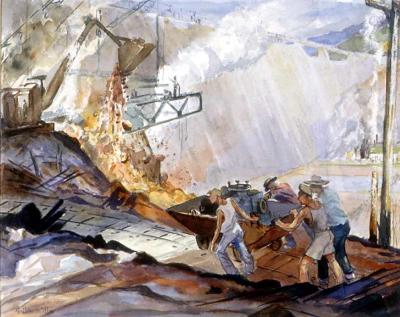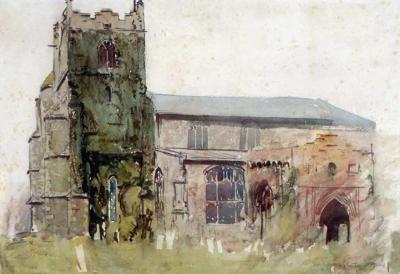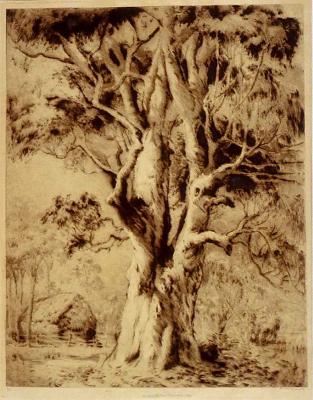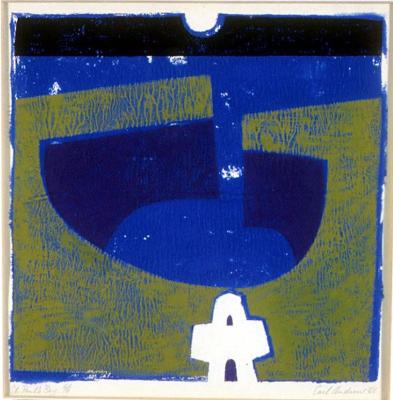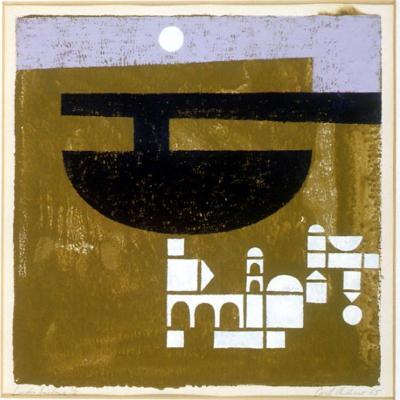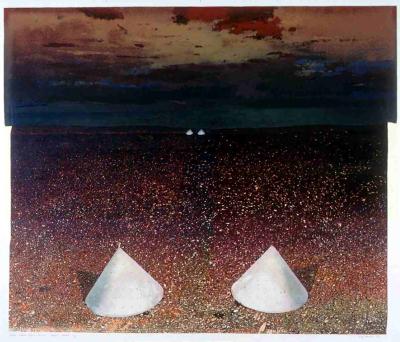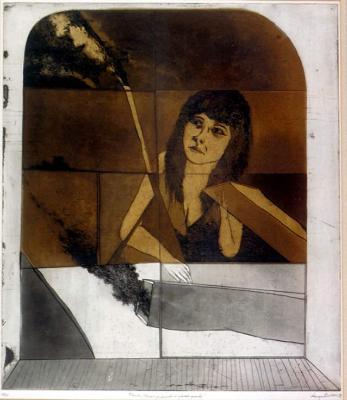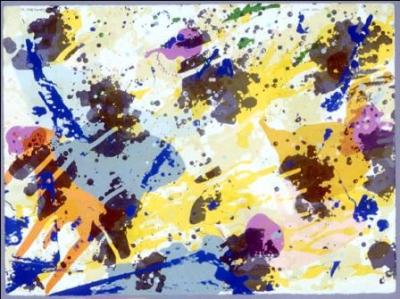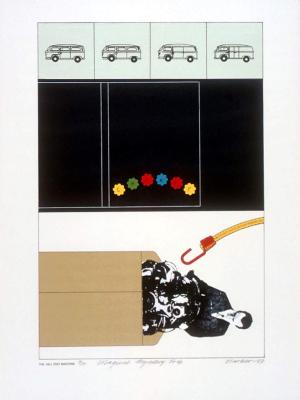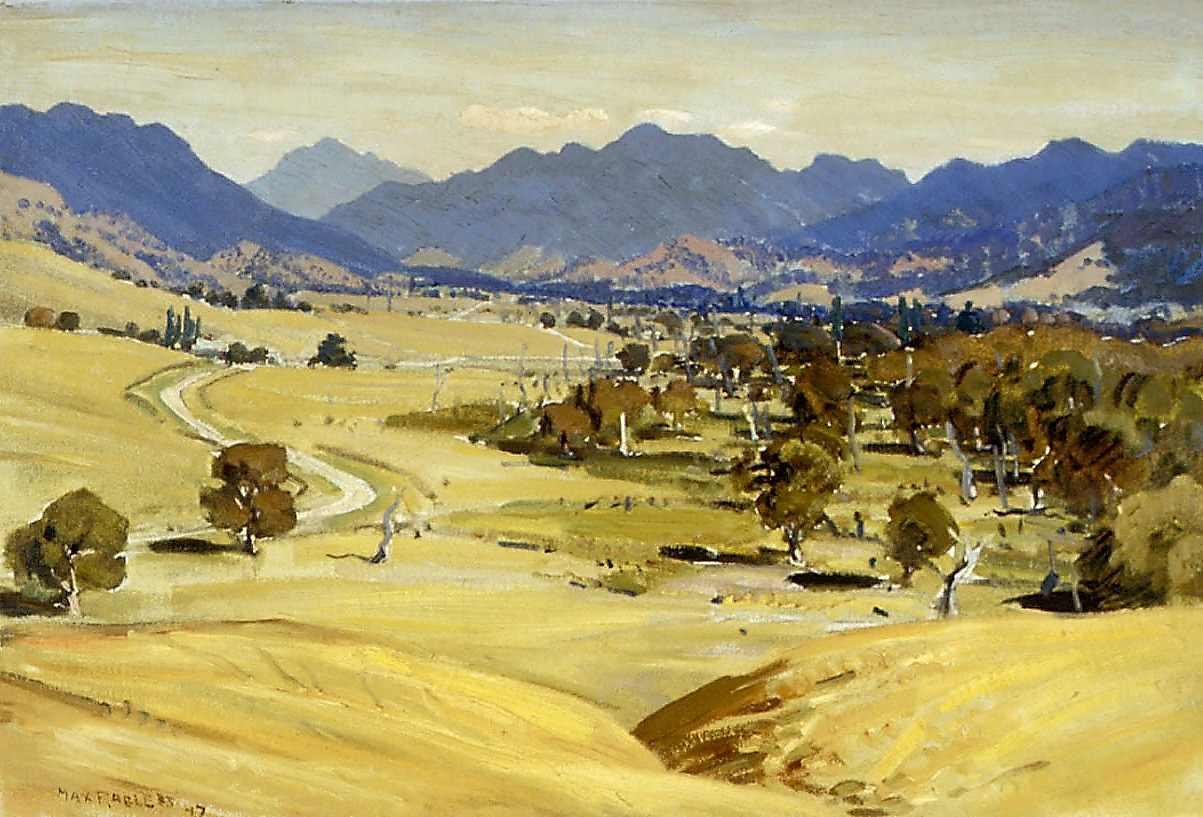Kiewa Valley
1947Oil painting on canvas of Kiewa Valley within the Murray-Darling Basin in Victoria, Australia.
This work was donated as part of the Claude Hotchin Bequest in 1958.
Details
Details
Signed and dated lower left in brown paint 'Max Ragless 47'
Maxwell Christopher Richard Ragless (1901-1981), an artist, was born on August 10, 1901, in Edwardstown, Adelaide, the second of four surviving children of Christopher Henry Ragless, a farmer born in South Australia, and Jane Young, originally from Scotland. Max exhibited artistic talent early in life and pursued his education at Kyre College. Despite training as a woolclasser, he ventured into various fields, managing his vineyard, Abercrombie, at South Road Estate (later Clovelly Park) from 1921 onwards, alongside assisting on his parents' nearby property. Alongside agricultural pursuits, he honed his engineering skills, designing and constructing workshop tools, farm machinery, motorcycles, and automobiles, even constructing an airplane. Additionally, he crafted wool fabrics on a handloom of his own design while devoting spare moments to self-teaching in painting.
On December 3, 1932, Ragless married Estelle Mary Alexander at St Columba’s Church of England in Hawthorn. Estelle, herself a talented craftswoman, encouraged Max to focus on his painting. In 1936, his etchings and aquatints were exhibited at the Royal Society of Arts’ Gallery in Adelaide, forming some of his most distinguished works, printed in limited editions. A review in the Sydney Morning Herald in 1938 likened his landscapes, displayed at the Grosvenor Galleries, to those of Sir Hans Heysen in both subject matter and style.
During 1941-43, Ragless served as a camouflage officer with the Department of Home Security. From April to December 1945, he worked as an official war artist in South Australia, capturing scenes at uranium mines, the Loveday internment camp, Whyalla shipyards, and the iron and steel works at Iron Knob. His wartime art showcased his engineering understanding and keen eye for detail, earning him prizes in Victoria at Ballarat (1944) and at Bendigo and Ferntree Gully (1945). Post-war, he predominantly focused on landscapes. By 1951, he retired from grape growing and farming to dedicate himself entirely to painting. Around 1956, the family relocated to Unley Park.
Ragless, a natural draftsman, was fascinated by form, colour, and the interplay of light in landscapes, often venturing into the outback for inspiration. His rapid technique allowed him to produce intricate pencil or crayon drawings in just fifteen minutes. He frequently experimented with materials, such as mixing oil paint with kerosene for a watercolour effect. Every brushstroke was purposeful, as he believed "every brushstroke is a drawing stroke."
A member of esteemed artistic societies, including the Royal South Australian Society of Arts, the Royal Art Society of New South Wales, and the Victorian Artists’ Society, Ragless received the H. C. Richards memorial prize from the trustees of the Queensland Art Gallery in 1959. Described as quiet, modest, and self-assured, with a focused demeanour and a gentle countenance, he passed away on January 4, 1981, in North Adelaide, and was cremated.
His works are showcased in the National Gallery of Australia, the Australian War Memorial in Canberra, and in galleries across all Australian states.
